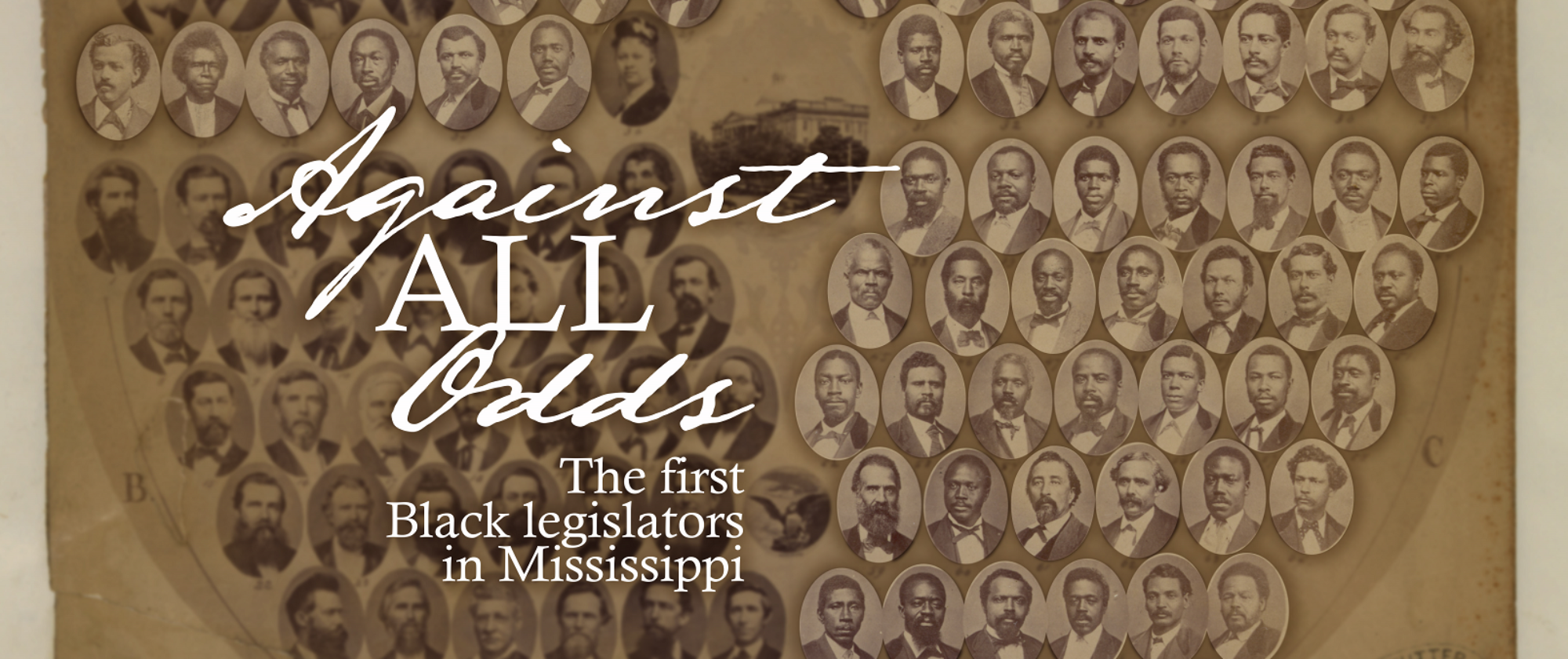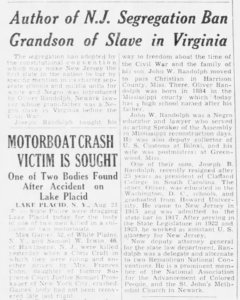Author of N. J. Segregation Ban Grandson of Slave in Virginia
The segregation ban adopted by the constitutional convention which may make New Jersey the first state in the nation to bar by specific mention in its charter separate schools and militia units for white and Negro was introduced by Oliver Randolph, Newark lawyer whose grandfather was a Negro slave in Virginia before the Civil War.
Joseph Randolph bought his way to freedom about the time of the Civil War and the family of his son, John W. Randolph moved to pass Christian in Harrison County, Miss. [Correction: John W. Randolph lived in and represented Leflore County before moving to Pass Christian in the 1890s.] There, Oliver Randolph was born in 1884 in the Mississippi county which today has a high school named after his father. [He was born in 1877 in Leflore County.]
John W. Randolph was a Negro educator and lawyer who served as acting Speaker of the Assembly in Mississippi reconstruction days. He was also deputy collector of U. S. Customs at Biloxi, and his wife was postmistress at Greenwood, Miss. [Mary Randolph’s position in Greenwood would have been while they lived in Leflore County.]
One of their sons, Joseph B. Randolph, recently resigned after 25 years as president of Clafland [Claflin] College in South Carolina. The other, Oliver, was educated in the Washington, D. C., schools, and graduated from Howard University. He came to New Jersey in 1915, and was admitted to the state bar in 1917. After serving in the State Legislature in 1922 and 1923, he worked as assistant U. S. attorney for New Jersey.
Now deputy attorney general for the state law department, Randolph was a delegate and alternate to two Republican National Conventions. He is a prominent member of the National Association for the Advancement of Colored People, and the St. John’s Methodist Church in Newark.

